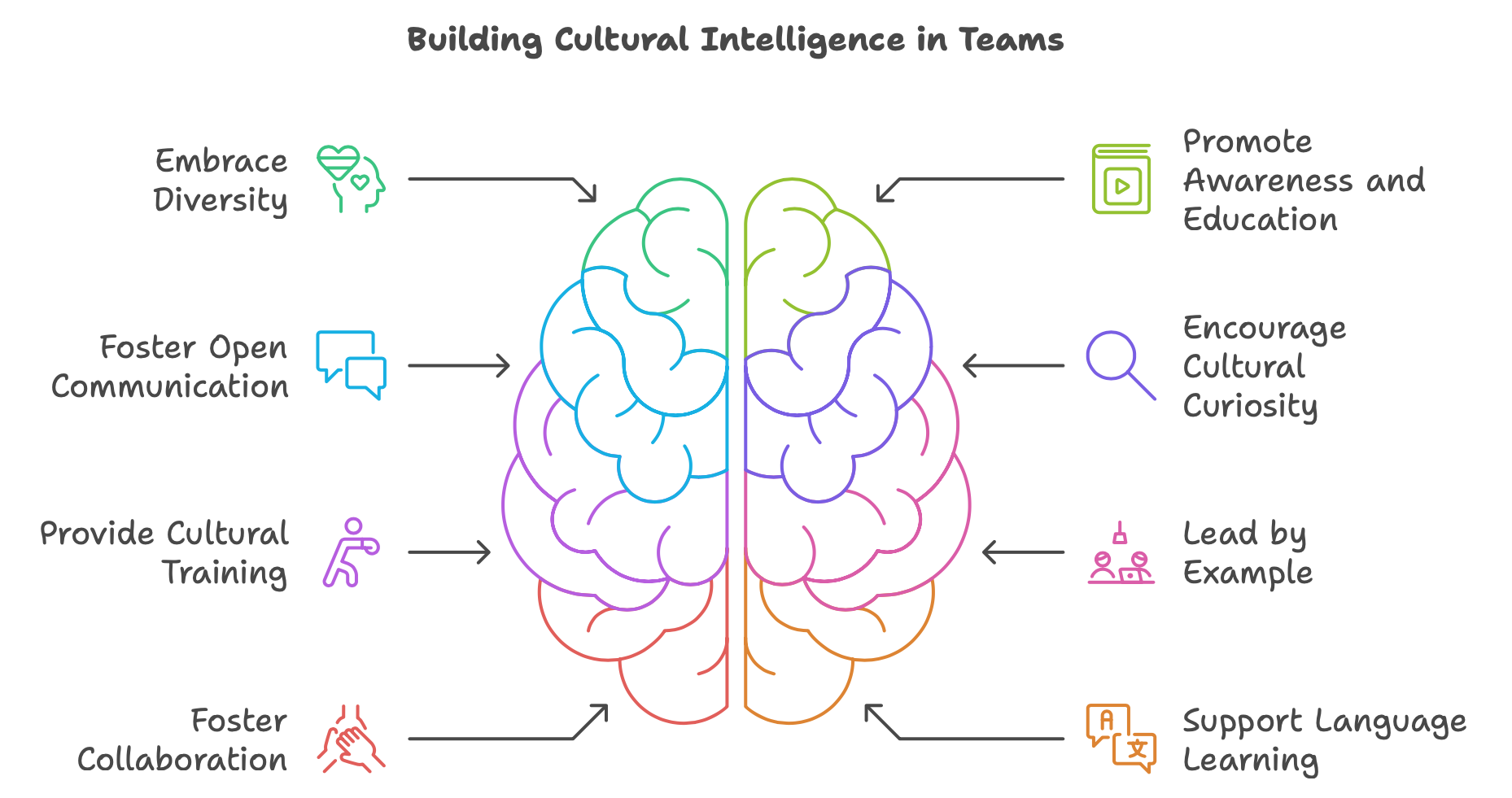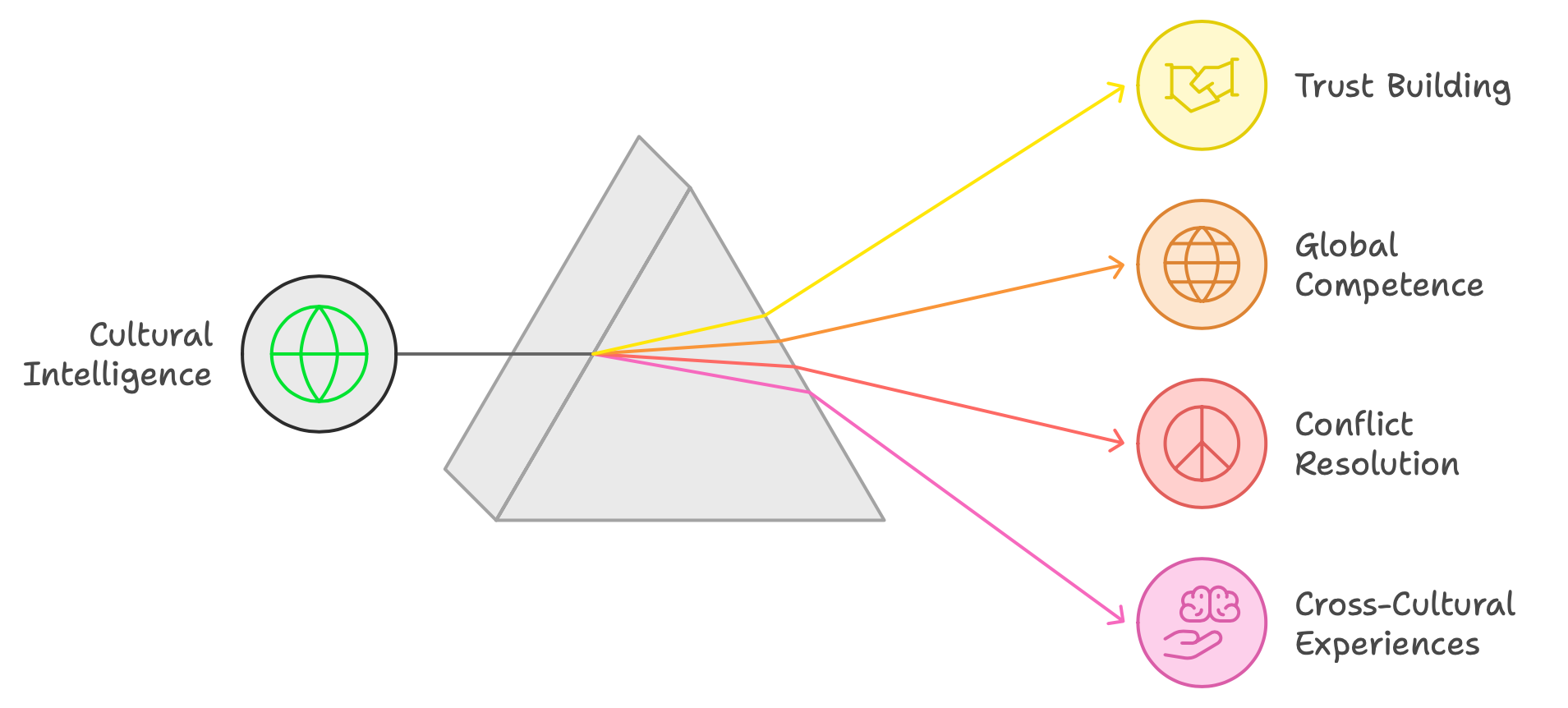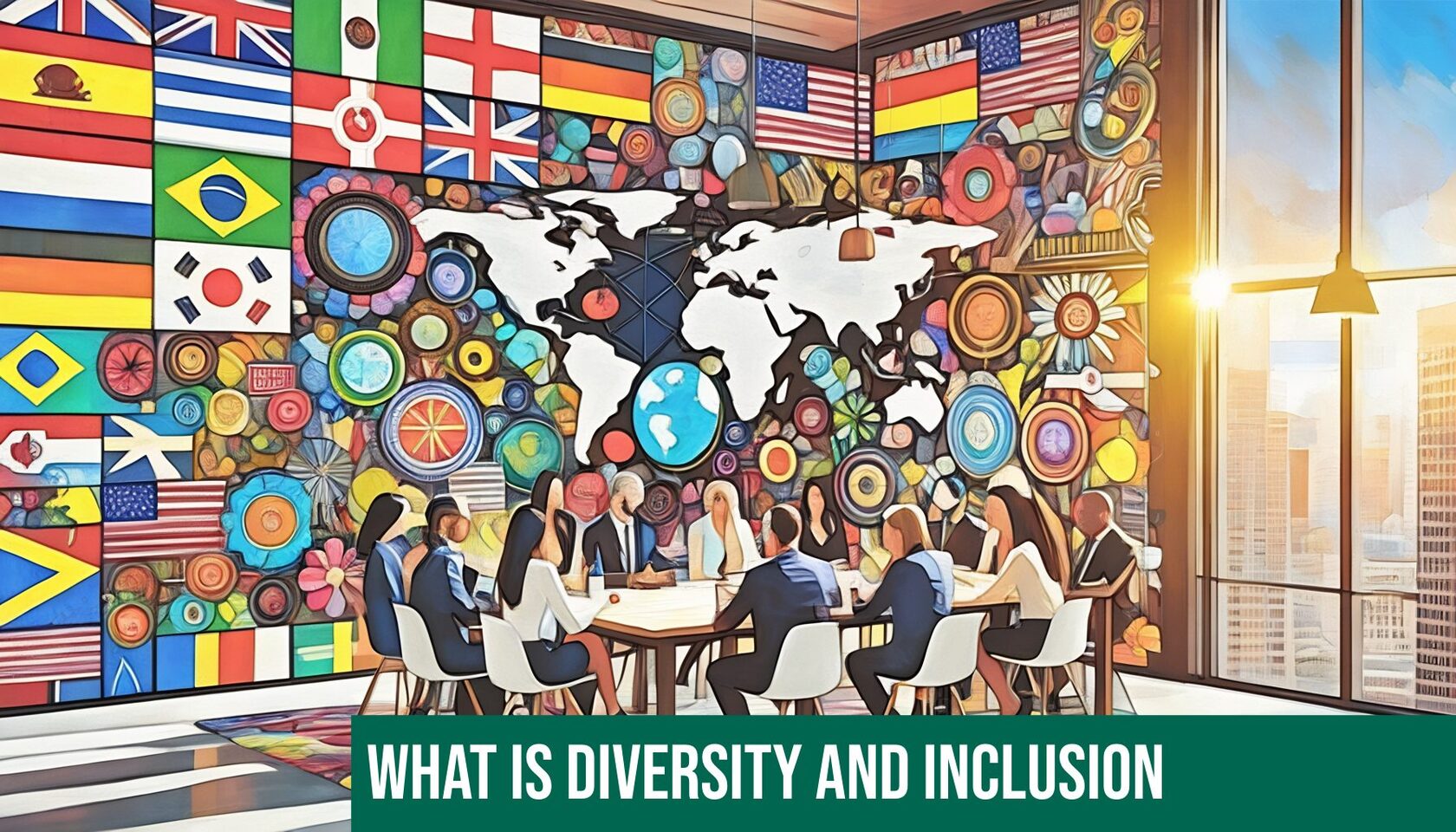Unlocking Cultural Connections: Embrace Diversity for a Global Mindset
Cultural intelligence refers to an individual's ability to effectively navigate and understand different cultural contexts. It involves the capability to adapt, communicate, and interact with people from diverse cultural backgrounds, including different nationalities, ethnicity, religions, and social norms.
Developing cultural intelligence is crucial in today's globalized world, where individuals frequently encounter diverse cultural settings, both in personal and professional contexts. It enables individuals to engage in meaningful and respectful interactions, build relationships, negotiate effectively, and collaborate with people from different cultural backgrounds.
Developing cultural intelligence is crucial in today's globalized world, where individuals frequently encounter diverse cultural settings, both in personal and professional contexts. It enables individuals to engage in meaningful and respectful interactions, build relationships, negotiate effectively, and collaborate with people from different cultural backgrounds.

Building a team with cultural intelligence requires intentional efforts to foster diversity, inclusion, and cross-cultural understanding. Here are some steps you can take to promote cultural intelligence within your team:
1. Embrace diversity: Actively seek diversity when forming your team. Encourage the inclusion of individuals from different cultural backgrounds, nationalities, ethnicity, and experiences. A diverse team brings a variety of perspectives, which is crucial for cultural intelligence development.
2. Promote awareness and education: Create opportunities for team members to learn about different cultures. This can be achieved through workshops, seminars, or guest speakers who can provide insights into various cultural practices, beliefs, and values. Encourage team members to share their own cultural experiences and engage in open discussions.
3. Foster open communication: Establish an environment where team members feel comfortable expressing their thoughts and ideas openly. Encourage respectful dialogue and active listening. This allows for the exchange of diverse viewpoints and promotes understanding and empathy.
4. Encourage cultural curiosity: Cultivate a sense of curiosity and interest in different cultures among team members. Encourage them to ask questions, seek knowledge, and engage in cross-cultural experiences. This can include exploring cultural events, trying different cuisines, or participating in cultural celebrations.
5. Provide cultural training and resources: Offer training programs or resources that specifically address cultural intelligence development. These may include workshops on cultural communication, intercultural sensitivity, or cross-cultural teamwork. Provide access to books, articles, or online resources that promote cultural understanding.
6. Lead by example: As a team leader, demonstrate cultural intelligence yourself. Show respect for different cultures, be open-minded, and value diverse perspectives. Embrace cultural differences within your team and actively seek opportunities to learn from and celebrate them.
7. Foster collaboration and teamwork: Encourage team members to work together on projects or assignments that require cross-cultural collaboration. This allows for the exchange of ideas, encourages mutual learning, and strengthens cultural intelligence within the team.
8. Provide support for language learning: If your team members come from diverse language backgrounds, consider offering language learning support. This can include language classes, language exchange programs, or providing access to language learning resources. Language skills can enhance cultural intelligence and facilitate effective communication.
9. Evaluate and adjust: Regularly assess the team's progress in developing cultural intelligence. Seek feedback from team members regarding their experiences, challenges, and suggestions for improvement. Adjust team dynamics or initiatives as needed to further enhance cultural intelligence within the team.
Why is it important for businesses?
Building trust and respect with your customers and partners: Cultural intelligence promotes respect and appreciation for different cultures. By demonstrating cultural sensitivity and adaptability, you establish trust with people from different backgrounds. This can lead to more positive and collaborative relationships, both personally and professionally.
Global business competence: In today's interconnected world, cultural intelligence is a crucial skill for international business success. It allows you to navigate diverse markets, adapt to local customs and practices, and build strong relationships with clients, partners, and colleagues from different cultural backgrounds. Understanding cultural nuances can lead to better negotiation outcomes and increase your chances of success in global business ventures.
Conflict resolution and diplomacy: Cultural intelligence plays a vital role in resolving conflicts and promoting diplomacy. It helps you navigate sensitive cultural issues, understand differing viewpoints, and find common ground. By demonstrating cultural understanding and empathy, you can bridge cultural gaps and work towards peaceful resolutions.
Global business competence: In today's interconnected world, cultural intelligence is a crucial skill for international business success. It allows you to navigate diverse markets, adapt to local customs and practices, and build strong relationships with clients, partners, and colleagues from different cultural backgrounds. Understanding cultural nuances can lead to better negotiation outcomes and increase your chances of success in global business ventures.
Conflict resolution and diplomacy: Cultural intelligence plays a vital role in resolving conflicts and promoting diplomacy. It helps you navigate sensitive cultural issues, understand differing viewpoints, and find common ground. By demonstrating cultural understanding and empathy, you can bridge cultural gaps and work towards peaceful resolutions.

Remember that building cultural intelligence is an ongoing process, and it requires a commitment to continuous learning and growth. By fostering a culture of inclusivity, curiosity, and respect, you can create a team that embraces and leverages cultural differences for collective success.
Overall, cultural intelligence enables you to navigate diverse cultural contexts with respect, adaptability, and effective communication. It opens doors to new opportunities, enriches relationships, and fosters a deeper understanding of the world around you.
Cross-cultural experiences are valuable for personal development, fostering tolerance, empathy, and respect for cultural diversity. They enhance one's ability to communicate effectively, collaborate, and navigate diverse cultural contexts. By actively seeking and embracing cross-cultural experiences, individuals can broaden their horizons and become more culturally aware global citizens.
Read our related articles:
The Science of Talent Acquisition: How Structured Evaluation Predicts Success
How Fractional HR and Flexible Work Schedules Enhanced Talent Acquisition at Charge
From Startup to Unicorn: How Corporate Culture and Talent Acquisition Evolve Together
Empowering Employees Through Learning: How Skill Development Drives Loyalty and Retention
UnitiQ: Customized HR Solutions to Build Cultural Intelligence in Your Team
At UnitiQ, we know that in today’s world, cultural intelligence isn’t just a nice-to-have, it’s a must. Our Fractional HRand Interim CHRO services are all about helping you build a diverse, inclusive team that can thrive across different cultures. We offer personalized solutions like diversity training, cross-cultural communication workshops, and inclusive hiring strategies that are tailored to your business needs.
Whether you’re looking to strengthen global relationships or improve collaboration within your team, UnitiQ has you covered. Reach out for a free consultation, and let’s start building a culturally intelligent team that drives success.
Olga Fedoseeva, Founder at UnitiQ direct contacts:
My Telegram
My LinkedIn
Whether you’re looking to strengthen global relationships or improve collaboration within your team, UnitiQ has you covered. Reach out for a free consultation, and let’s start building a culturally intelligent team that drives success.
Olga Fedoseeva, Founder at UnitiQ direct contacts:
My Telegram
My LinkedIn








